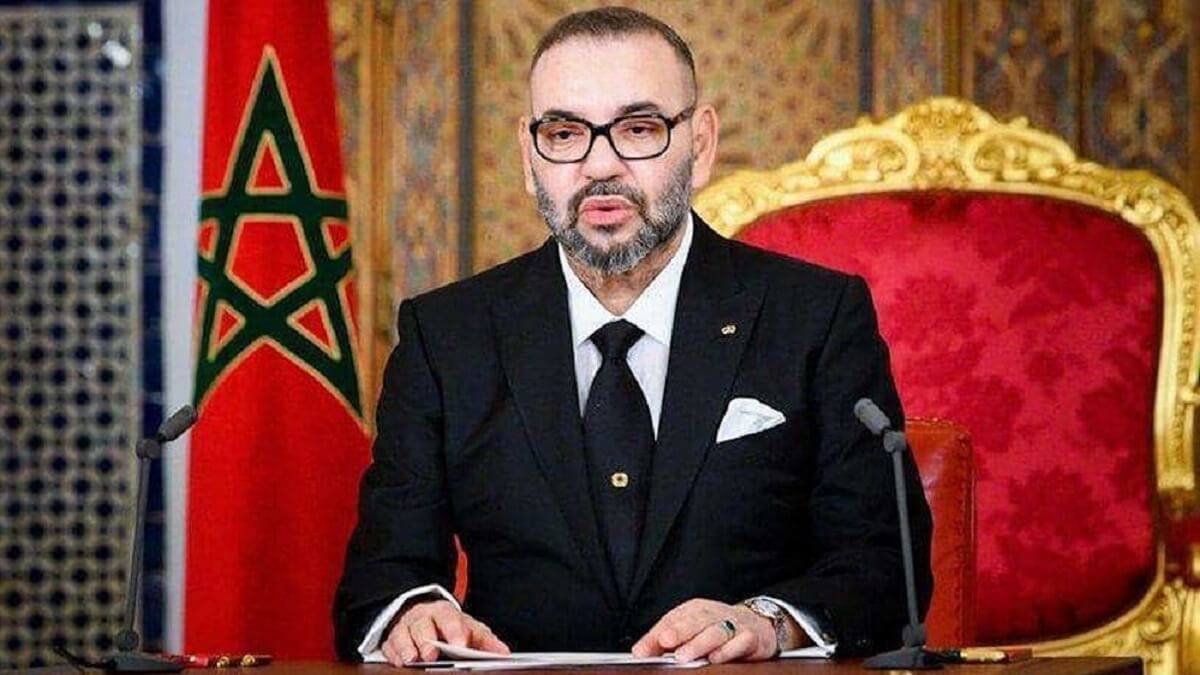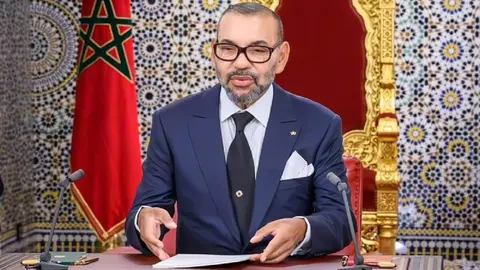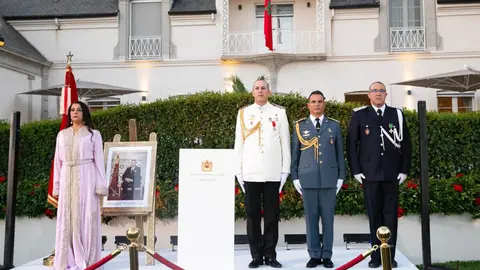Mohammed VI insists on reaching out to Algeria

Mohammed VI, King of Morocco, once again attempted a new diplomatic rapprochement with Algeria on the occasion of his speech commemorating the Feast of the Throne, a festival held this Sunday in Morocco to mark the 24th anniversary of his accession to the throne.
The King of Morocco has reached out to Algeria on several occasions in recent years, despite the fact that the Algerian country has been very hard on the Moroccan kingdom, even going so far as to break diplomatic relations in August 2021 with its Maghreb neighbour after accusing it of carrying out "hostile acts" and irreconcilable political differences on major issues such as Western Sahara.
Last Saturday, King Mohammed VI reiterated this policy of a constant outstretched hand to Algeria during his speech on the occasion of the Feast of the Throne, a holiday that marks the 24th anniversary of his accession to the Moroccan throne in 2023.

Also during last year's Feast of the Throne speech, the Alawi monarch offered a sincere and cordial dialogue with Algeria to iron out differences, but the Algerian response has been the opposite, insisting on tightening the political and diplomatic tension.
The King of Morocco has not visited Algeria since 2005, when he went to Algiers for the Arab League summit, and had no problems on that occasion, even displaying normality when he visited various parts of the Algerian capital. And the Moroccan monarch's conciliatory attitude remains the keynote of his policy despite the setbacks with Algeria.
The Sahrawi question is very important for Morocco because it has to do with its territorial integrity, as it understands that Western Sahara is part of what are known in the Kingdom as the southern provinces. And here the differences with Algeria are great.

Morocco proposes a formula of broad autonomy for Western Sahara under Moroccan sovereignty, respecting the resolutions of the United Nations (UN). This initiative would give the Saharawi territory a great deal of room for manoeuvre, with a Moroccan state in charge mainly of foreign policy and security. Several important countries such as the United States, Israel, the United Arab Emirates, Germany and even Spain, which was the colonial power in the Saharawi territory, have shown their support for Morocco, considering the Alawi kingdom's proposal to be the most serious and credible way of resolving the Saharawi dispute.
On the other hand, the Polisario Front, with the invaluable support of Algeria, advocates holding a referendum on independence for the Sahrawi population, which has less international backing and is difficult to implement, as several experts have pointed out.
It now remains to be seen whether or not official Algeria will ignore the repeated offers of dialogue from Morocco's King Mohammed VI. Algiers may remain silent and the response could come from journalists or political commentators, in Algeria or outside Algeria, as analysts point out.

Some of them described the Moroccan offer as a "poisoned gift", a "trap set by the King for Algerian leaders". Others speak of an "air of déjà vu", while others call for international mediation between Rabat and Algiers and continue to sound the alarm about the imminence of a larger-scale conflict between Morocco and Algeria, as pointed out by various media outlets such as Maghreb Intelligence.
The clear example of the fact that Algeria is the most tense in the situation and that Morocco seeks understanding rather than confrontation is that it was Algeria that broke off diplomatic relations in August 2021, and not Morocco, which has not gone to that extreme.
On the other hand, certain attitudes are leading Algeria to greater international isolation, while Morocco enjoys important diplomatic ties that have led to the support of relevant nations for its proposal for Western Sahara, and which have led it to have important trade and security relations with powers in these areas such as the United States and Israel. This situation has been boosted by Morocco's inclusion in the dynamics of the Abraham Accords, sponsored by the US giant, under which several Arab countries established diplomatic relations with the Israeli state with the aim of pacifying the Middle East and developing the region socially and economically as much as possible by favouring all kinds of political and commercial relations.










